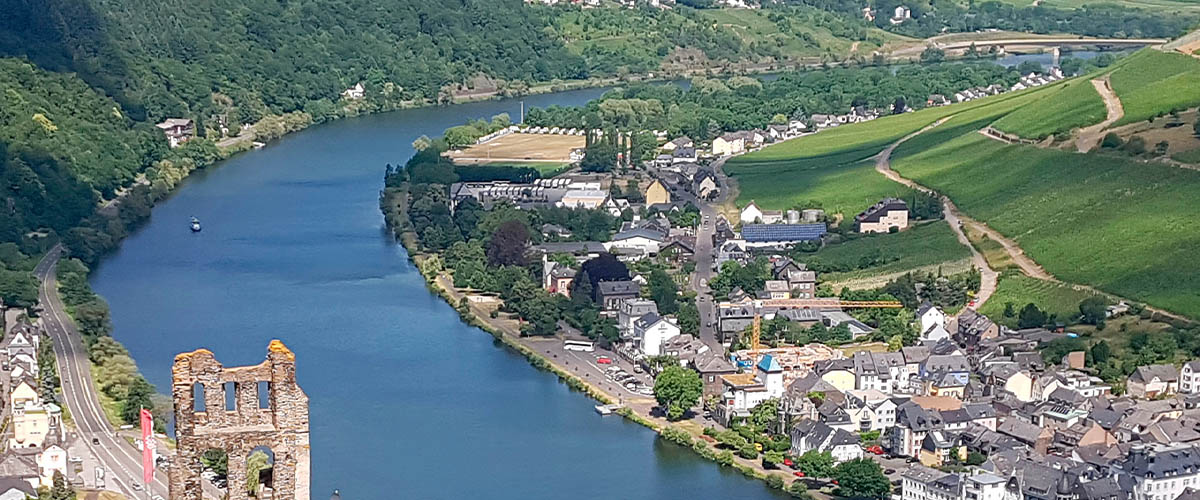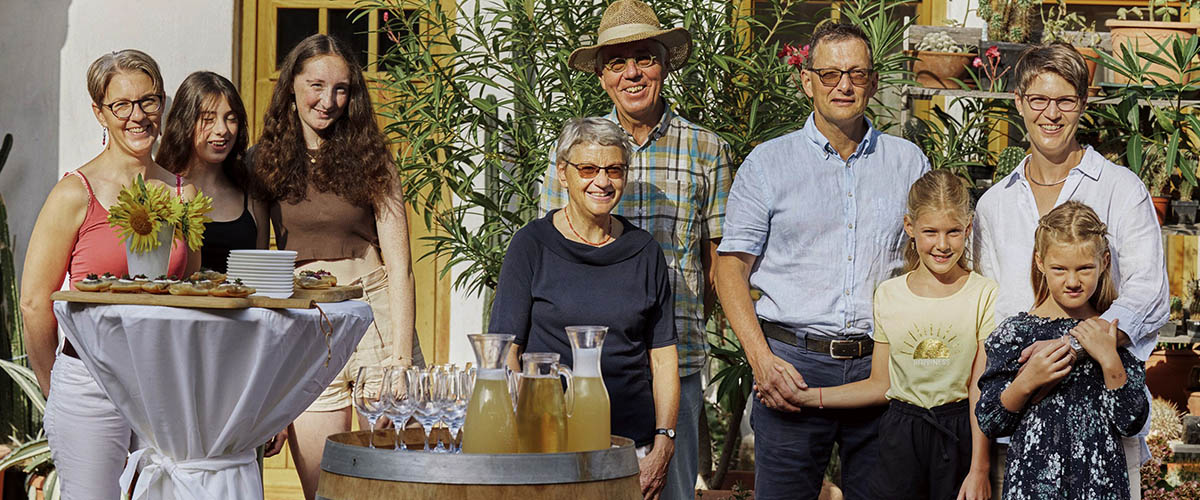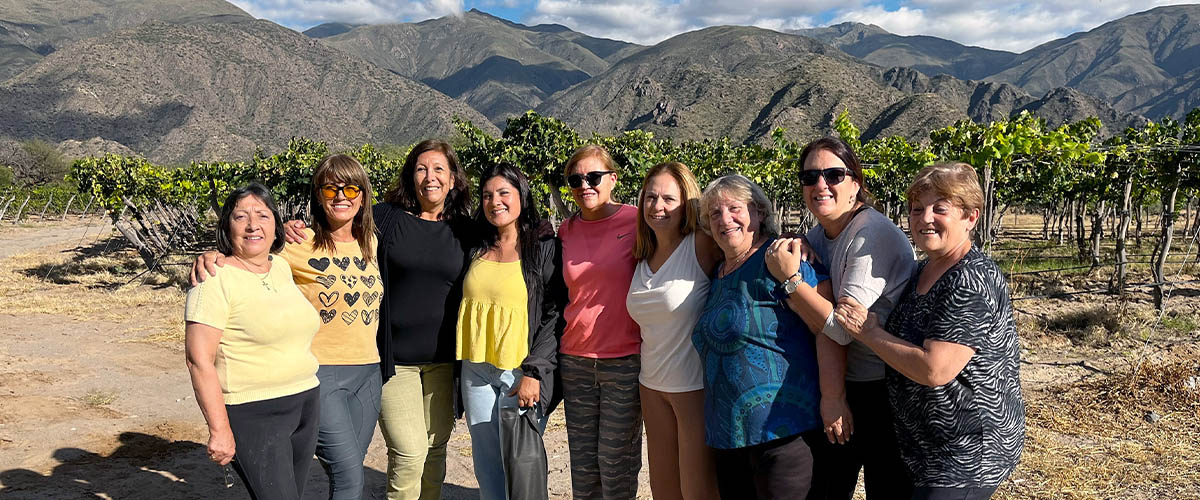arte, 12.40 pm
In Japan, sake is a national treasure and a welcome outlet in a cramped society, drunk on every occasion. But it took a long time for rice wine to win the hearts of the Japanese. The history of the drink is inextricably linked to that of the country: a slow but irreversible democratisation from the aristocracy of the past to the young trendsetters of the present.
arte, 4.55 pm
The volcanic island of Pantelleria lies between Sicily and Tunisia and is also known as the "black pearl of the Mediterranean" because of its beauty. Everything on the island seems to duck before the winds: olive trees, vines and houses. Salvatore Ferrantes is a Pantescho and proud of it. He has always been a bit of an oddball. His parents had their difficulties with him, as his elderly mother Caterina assures us. He dropped out of secondary school because the journey to Palermo seemed like travelling the world to him. He wanted to stay on the island, become a farmer and try his luck with capers. They are the trademark of Pantelleria. But most Panteschi supply them to the co-operative. Salvatore did his own thing - and organically too!
arte, 8.25 a.m.
The Moselle: Among Europe's rivers, it usually plays a subordinate role. Nevertheless, at 544 kilometres, the second longest tributary of the Rhine has nothing to hide. Although the Moselle is one of the busiest waterways in Europe, it has retained its original beauty in many places. "GEO Reportage" visits one of the steepest vineyards in the world, the Calmont, in the Moselle valley and meets the winegrower Kilian Franzen. The reporters then meet barge driver Franck Pihens and visit Europe's last wooden theatre in the small town of Bussang.
hr television, 4.00 pm
Even though the last work in the vineyards is done in December, the Rheingau is not in hibernation. That's when people celebrate and enjoy themselves behind the walls of villas, monasteries and castles. In the candlelit ballroom of Schloss Vollrads, film author Nina Thomas presents dishes from the Greiffenclau family's old menus. There she also experiences the ice wine harvest in the freezing cold. In a sparkling wine cellar in Geisenheim, a whole menu is cooked to accompany the Rheingau sparkling wines.
arte, 4.30 pm
There are around 17,000 olive trees on the island, the most northerly in Italy. This is due to the particularly mild microclimate of the lake at the foothills of the Alps. It also favours winegrowing on the southern shore. The Franciacorta sparkling wine, which was created here in the 1960s, is now sought after worldwide.
3sat, 6.30 a.m.
While travelling along the Adriatic coast, you will learn a lot about Croatia's history and meet exciting characters: from an employee of a seawater saltworks to a wine farmer's wife from the island of Hvar and teachers at the stonemasonry school in Pučišća. The island of Hvar is also home to the jet set. The island is one of the sunniest in Europe and boasts historic monuments and Mediterranean serenity.
SWR Television, 20.15 hrs
Hot, sweet, delicious - cult: mulled wine put to the test. Does mulled wine at the Christmas market taste best, or is it the kind you make yourself according to an old family recipe? If it has to be quick and uncomplicated, it can also be ready-made mulled wine from the supermarket or discounter. There is a wide range on offer and prices vary greatly. Is it worth digging deeper into your pocket? Which mulled wine tastes best? And what's inside?
SWR Television, 5.30 a.m.
Alsace is a special region in the heart of Europe, where there are still natural treasures in great diversity. Between the Rhine and the Vosges mountains, warm valleys meet cool mountainous areas. Here, very different habitats lie close together in the midst of a cultural landscape characterised by viticulture.
SWR Television, 5.45 a.m.
The Kaiserstuhl, a small low mountain range, rises out of the Upper Rhine Plain like an island. On the slopes of the extinct volcano, it is mostly sunny and dry - good conditions for viticulture and warmth-loving animals and plants.
3sat, 4.55 pm
The first part of the route leads through vineyards and the wild Pfyn-Finges Nature Park, where organic winegrower Felicitas Mathier cultivates her vineyard in a natural way.
arte, 7.30 a.m.
The Sandanski region lies between the Pirin National Park with its astonishing geological formations and the town of Melnik with its centuries-old vineyards - and offers everything you need for a pleasant trip to the Balkans. In ancient times, the Thracian people lived here, who produced a famous gladiator...
SWR Television, 10.30 a.m.
Hot, sweet, delicious - cult: mulled wine put to the test. Does mulled wine taste best at the Christmas market or when you make it yourself according to an old family recipe? If it has to be quick and uncomplicated, it can also be ready-made mulled wine from the supermarket or discounter. There is a wide range on offer and prices vary greatly. Is it worth digging deeper into your pocket? Which mulled wine tastes best? And what's inside?
arte, 7.35 a.m.
Zeus is known in mythology as a womaniser. One day he seduces a mortal, Semele, the princess of Thebes. She gives him a son, Dionysus, who is denied access to Olympus due to his dual nature and the anger of Hera, Zeus' wife. He is raised by nymphs and knows that he has an arduous path ahead of him until the gods recognise him. Dionysus becomes a wandering god, a vagabond. One morning, Dionysus makes a discovery that will change the lives of mortals: The young god finds grapes, and the idea matures in his mind to plant vines and press wine from the grapes. He decides to travel the world and pass on his knowledge of wine-making to the people.
NDR Television, 11.30 a.m.
The Brinkmann family, who own the forest, had the idea of trying their hand at wine. On the southern slope of the Teutoburg Forest in Bad Iburg, Jan Brinkmann planted vines on a 27-degree incline. It is the only hillside site authorised for viticulture in Lower Saxony. The highlight of the year is the harvest with many volunteers.
3sat, 12.45 pm
Traben-Trarbach is famous for its art nouveau buildings. But why are there so many of them? Simin Sadeghi visits the twin town on the Moselle in autumn and during Advent. At the beginning of the 20th century, the wine trade made the town rich. Simin Sadeghi meets old-established residents of Traben and Trarbach, who bring the glamorous past back to life with their stories and old photos. A labyrinth of cellars in which wine barrels were stored is a reminder of this time. A lot of wine is still grown in and around Traben-Trarbach today. Simin takes part in the grape harvest and wants to find out why Riesling dominates. During the Advent season, Traben-Trarbach's underworld is transformed into one of the most beautiful and probably most unusual Christmas markets in the south-west: the "Moselle Wine Night Market".
 |
Bavarian Television, 7.15 pm
Surrounded by wooded hills and vineyards, Würzburg lies on the River Main. The river, the wine and the church have characterised the city. Traditional things are preserved or revitalised, old things are discovered, surprising things are added. Wine matures in wooden barrels, amphorae and concrete eggs at the Würzburger Stein. From there, the city's most famous vineyard, you can see the many towers that characterise the cityscape.
3sat, 8.15 pm
The Danube is the reason for Vienna's rise to become a royal seat. The Roman Empire with its thermal baths, temples and palaces once stretched right up to the banks of the river. Lake Neusiedl is a natural paradise and a melting pot of different cultures. Monasteries and terraced vineyards, on the other hand, characterise the Wachau.
SWR Television, 8.15 pm
Simone Gutting didn't want to become a winemaker. But when her sister married into another business, she quit her job in business and took over the management of the organic wine business in Duttweiler from her parents in 2016. The winery was founded by her grandfather in 1954 and Simone's mother was one of the first female master winemakers in the Palatinate. Simone Gutting's organic winery is located in Duttweiler in the Palatinate near Neustadt an der Weinstraße. She cultivates 14 grape varieties on 17 hectares of land. In addition to her tasks in the vineyards, Simone works several hours a day in the office. She describes herself as "Head of Desk" and her father as "Head of Wine". Her mother also works on the farm. Simone's husband Michael, who used to work as a chemist, concentrates on the tasks in the wine press house.
 |
3sat, 5.35 pm
In the 18th century, the Habsburgs turned Tuscany and its capital Florence into one of the most modern states in the world. Alessandro François' ancestors settled in Tuscany in 1740 out of loyalty to the imperial family. Since the late 19th century, the family has dedicated itself to winegrowing in the Chianti region around the Castello di Querceto castle. Alessandro François guides Gernot Stadler through his vineyards and talks about the time when his ancestors were loyal servants of the Grand Dukes.
arte, 6.30 a.m.
The Moselle: Among the rivers of Europe, it usually plays a subordinate role. Nevertheless, at 544 kilometres, the second longest tributary of the Rhine has nothing to hide. Although the Moselle is one of the busiest waterways in Europe, it has retained its original beauty in many places. "GEO Reportage" visits one of the steepest vineyards in the world, the Calmont, in the Moselle valley and meets the winegrower Kilian Franzen. The reporters then meet barge driver Franck Pihens and visit Europe's last wooden theatre in the small town of Bussang.
arte, 17.50 hrs
The fourth episode takes us to the Basque Country. In the far west, the Pyrenees end at the Atlantic Ocean. In the bay of Saint-Jean-de-Luz, a winegrower anchors his wine barrels at the bottom of the sea and leaves them to the changing tides.
hr television, 9.45 pm
Madeira is also known as the "Island of Flowers" or the "Island of Eternal Spring" - and both refer to the fact that the island around 600 kilometres off the west coast of Africa has a very special climate. Not too hot in summer, not too cold in winter - and it's not just the vines that like it. Madeira is a protected designation of origin for the fortified wine from the island, which belongs to Portugal.
MDR Television, 9.30 a.m.
In the Okanagan Valley lies Canada's wine-growing region, which is also worth a visit in winter. There are more than 170 licensed wineries there, so it's hardly surprising that the valley invites repeat visits.
3sat, 3.55 pm
The Azores islands rise out of the Atlantic as the peaks of huge underwater volcanoes. Pico, named after the 2,351 metre high volcano Ponta do Pico, is the island of wine and whales. The evergreen archipelago in the middle of the ocean attracts visitors with its fascinating landscapes and idyllic villages. Tours to extinct volcanoes, bathing in hot springs and hiking through forests and vineyards - the Azores offer island hopping to diverse paradises for hikers, nature lovers, geotourists and water sports enthusiasts - far away from mass tourism.
arte, 8.00 a.m.
Mendoza, located at the foot of the Andes, is Argentina's most important wine region and boasts a breathtaking backdrop. The world-famous Malbec grape, from which the famous red wine is made, grows here. This wine has always been produced mainly by men. However, a group of dedicated women are now fulfilling their dream of producing their own wine: they call it "Apasionadas", "passionate", as they themselves are. It has been a rocky road, but the strong community has turned the dream into reality.
 |
SWR Television, 2.15 pm
If you come from Mannheim or Ludwigshafen and want to travel to Bad Dürkheim to drink wine, you either have to stay overnight or take the 4A, a tram line that becomes a railway from Oggersheim. It is better known as the Rhein-Haardtbahn. Today, as in the past, it is an important route, and not just for visitors to the Wurstmarkt or Weinbergsnacht.
Bavarian Television, 3.30 p.m.
The losers of climate change: many perennials, strawberries, redcurrants, freshly planted woody plants, evergreens and spruces. The winners: apples and other pome fruit, vines, succulent plants, tomatoes, melons and figs. Meteorologist Michaela Koschak talks about hot weather in summer, dry summers in the past and the localisation of precipitation.
Bavarian Television, 3.30 p.m.
In classical antiquity, ivy was dedicated to the gods of wine. They were depicted with vine and ivy foliage. The climbing plant symbolises eternal loyalty and immortality. In the legend of Tristan and Isolde, it is an ivy bush that unites the two in death.
3sat, 9.20 a.m.
Birgitta Westin comes to the Christmas market every year. She sells a typical Swedish Christmas speciality, glögg. The Swedish mulled wine is brewed without alcohol, using only water, berries and spices. Birgitta Westin's glögg is one of the best in the country and has won several awards. In her glögg kitchen, she shows us what it takes to make a real Swedish mulled wine.
3sat, 7.15 pm
From calvados to apple strudel, from apple wine to cider: this documentary looks at the history of the apple. It is one of the oldest domesticated types of fruit and shows the most diverse forms of processing. Whether in strudel, juice or wine - this heavenly temptation has been a favourite cooking ingredient for centuries. Margarita Huber's "apple wine cake" is a culinary highlight. From Bavaria, the tour continues to Normandy to one of the most beautiful markets in Lisieux and the Château du Breuil. This is home to one of the most famous Calvados distilleries in France, which gives its name to the award-winning apple brandy produced there. Made from Calvados apples and aged in oak barrels for two to six years, the drink goes perfectly with Brie.
Too little water on the slopes of the Rhine: in Oberwesel on the Middle Rhine, young winegrower Maximilian Lambrich and his sister Julia are struggling with the consequences of the extreme drought. To save their grape harvest, they water the young vines and even prune them so that the remaining vines survive. The winegrowing family wonders what will happen to the vines if drought years become more frequent due to climate change. However, the vine quickly slows down its growth during droughts and sometimes sacrifices some of its leaves, which turn yellow and die. The conversion of sugar in the leaves through photosynthesis is also impaired if the intensity and duration of the water shortage increases.
Drought on the Rhine - View the consequences of the water shortage